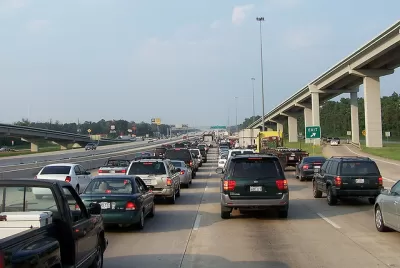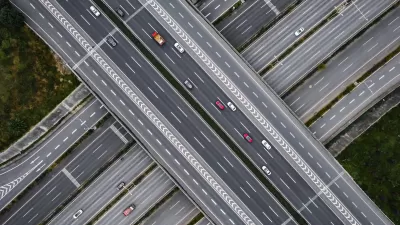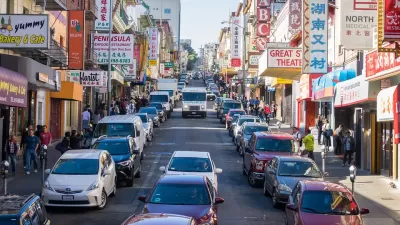The status quo is unhealthy for everybody.

Austin Frakt, director of the Partnered Evidence-Based Policy Resource Center at the V.A. Boston Healthcare System; associate professor with Boston University’s School of Public Health; and adjunct associate professor with the Harvard T.H. Chan School of Public Health, takes to the pages of The New York Times to provide a literature review, of sorts, of all the evidence for the negative health impacts of long, congested commutes.
There is a lot to unpack here, but research suggest that congestion and long-commute times has negative outcomes on stress, respiratory health, aggressive behavior, and domestic violence.
While there is plenty of bad news to deliver about the consequences of the daily realities of most people in the United States, Frakt also provides a few examples of light at the end of the tunnel, so to speak. For instance, charging drivers for access to express lanes has shown positive results on the stress levels of commuters:
Los Angeles has put in a system that charges solo drivers more to use certain lanes of the I-10 and I-110 highways during periods of heavy traffic. This encourages drivers to move their commutes to less congested times or routes. A study of congestion pricing on Seattle’s SR-520 Bridge found that drivers using the route and its alternatives were less stressed and more satisfied with their commutes after the pricing change.
Frakt also lists increasing options for remote work, bike and transit commutes (in some cities), and the potential of autonomous transportation for further mitigating some of the negative health outcomes connected to driving and congestion.
FULL STORY: Stuck and Stressed: The Health Costs of Traffic

Planetizen Federal Action Tracker
A weekly monitor of how Trump’s orders and actions are impacting planners and planning in America.

Restaurant Patios Were a Pandemic Win — Why Were They so Hard to Keep?
Social distancing requirements and changes in travel patterns prompted cities to pilot new uses for street and sidewalk space. Then it got complicated.

Map: Where Senate Republicans Want to Sell Your Public Lands
For public land advocates, the Senate Republicans’ proposal to sell millions of acres of public land in the West is “the biggest fight of their careers.”

Maui's Vacation Rental Debate Turns Ugly
Verbal attacks, misinformation campaigns and fistfights plague a high-stakes debate to convert thousands of vacation rentals into long-term housing.

San Francisco Suspends Traffic Calming Amidst Record Deaths
Citing “a challenging fiscal landscape,” the city will cease the program on the heels of 42 traffic deaths, including 24 pedestrians.

California Homeless Arrests, Citations Spike After Ruling
An investigation reveals that anti-homeless actions increased up to 500% after Grants Pass v. Johnson — even in cities claiming no policy change.
Urban Design for Planners 1: Software Tools
This six-course series explores essential urban design concepts using open source software and equips planners with the tools they need to participate fully in the urban design process.
Planning for Universal Design
Learn the tools for implementing Universal Design in planning regulations.
Heyer Gruel & Associates PA
JM Goldson LLC
Custer County Colorado
City of Camden Redevelopment Agency
City of Astoria
Transportation Research & Education Center (TREC) at Portland State University
Camden Redevelopment Agency
City of Claremont
Municipality of Princeton (NJ)





























